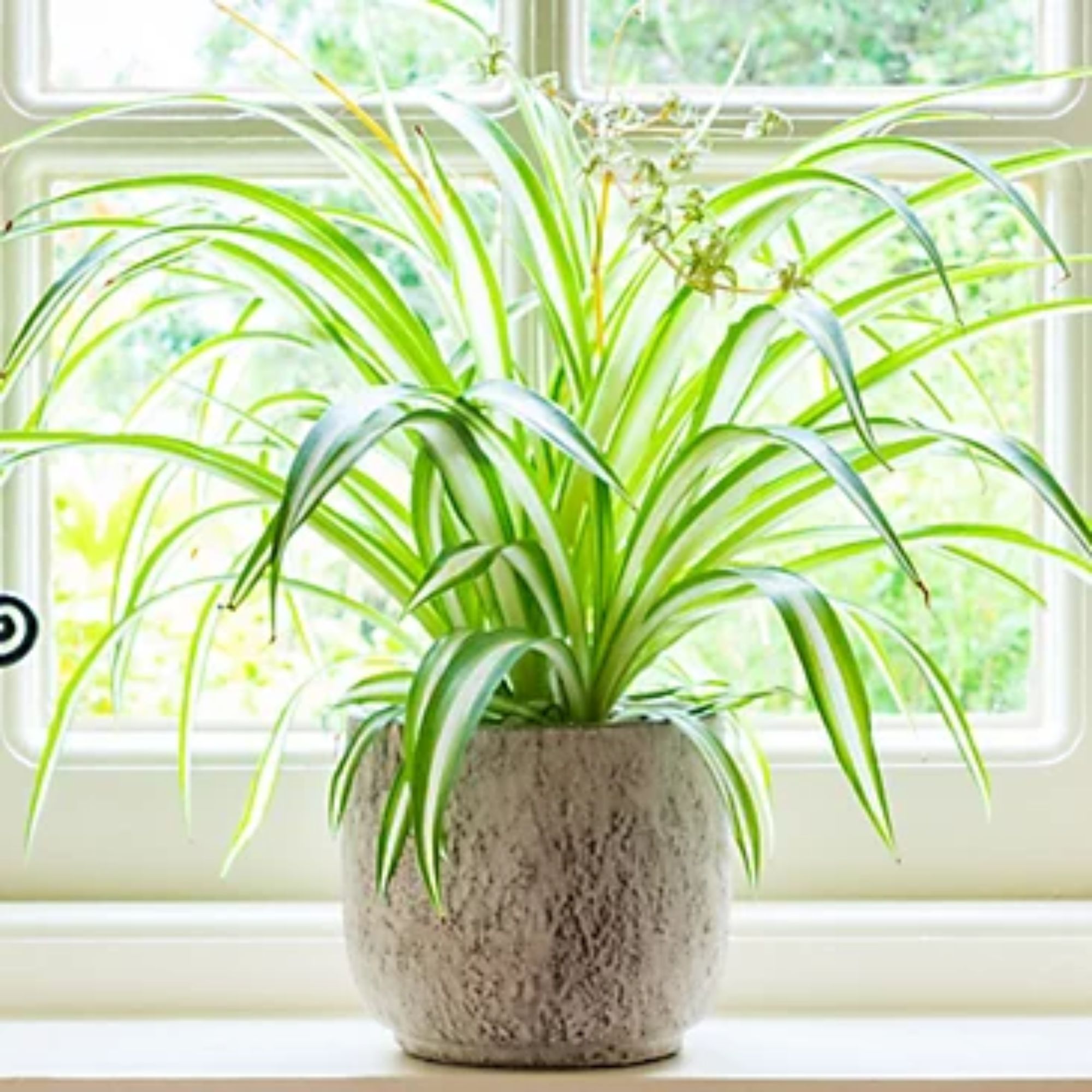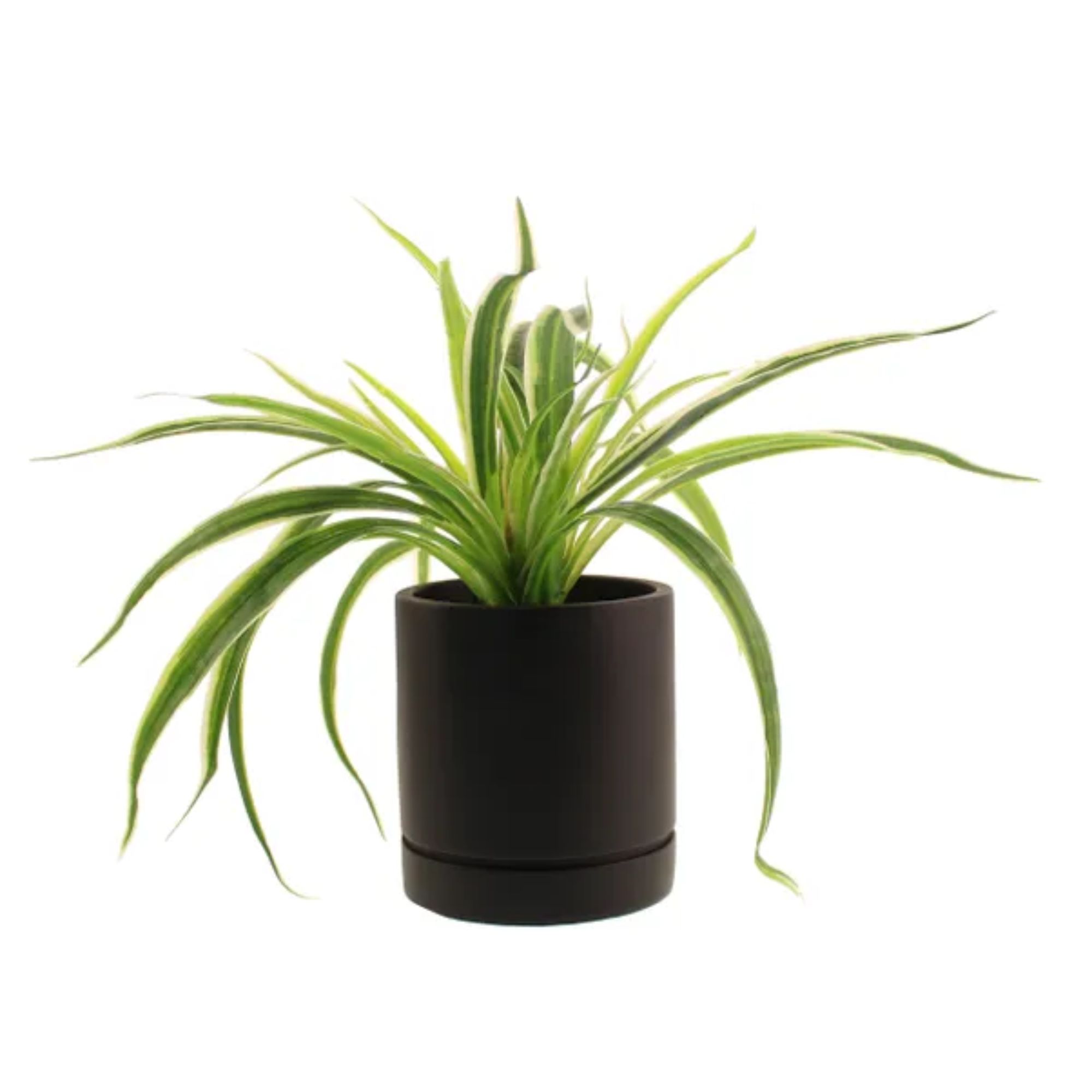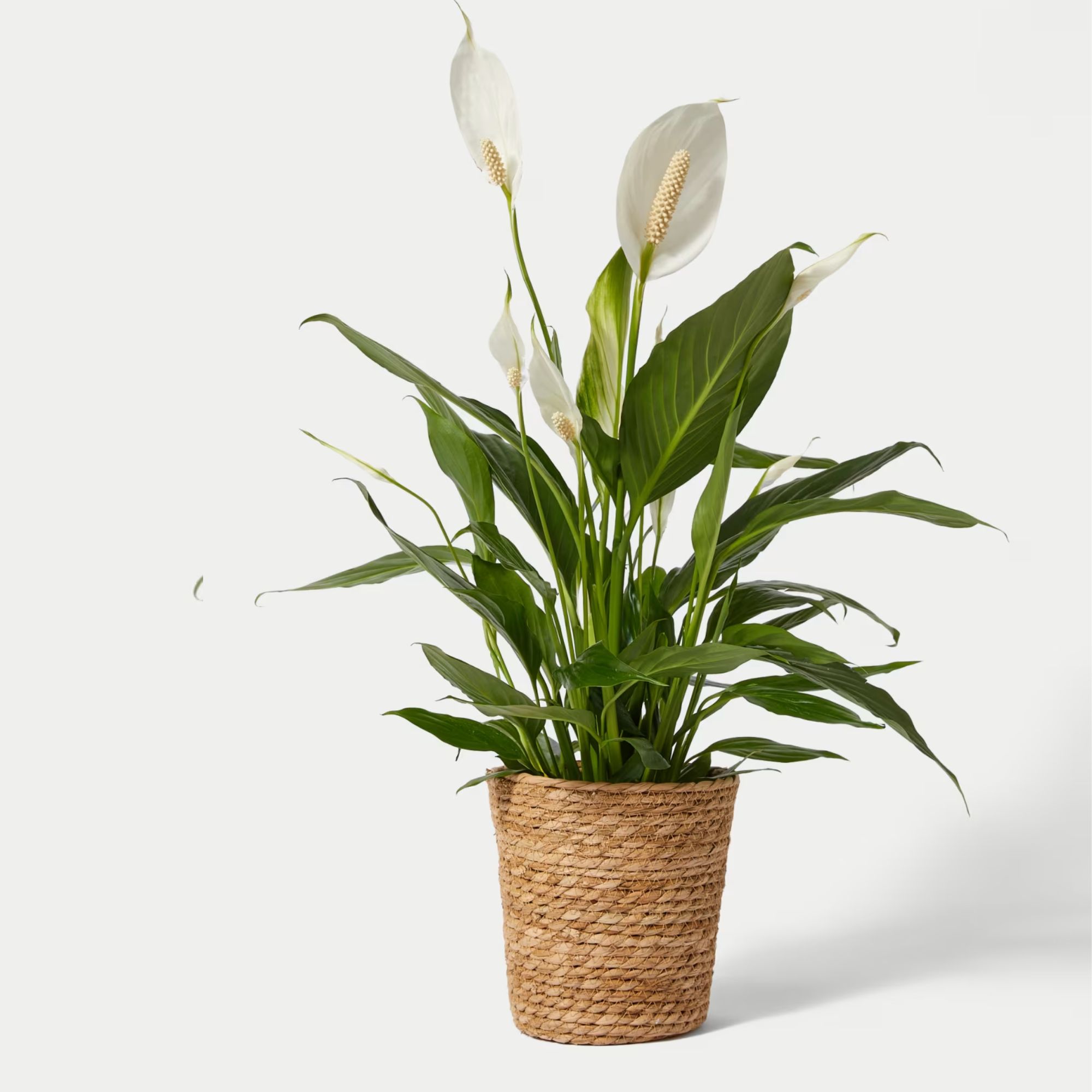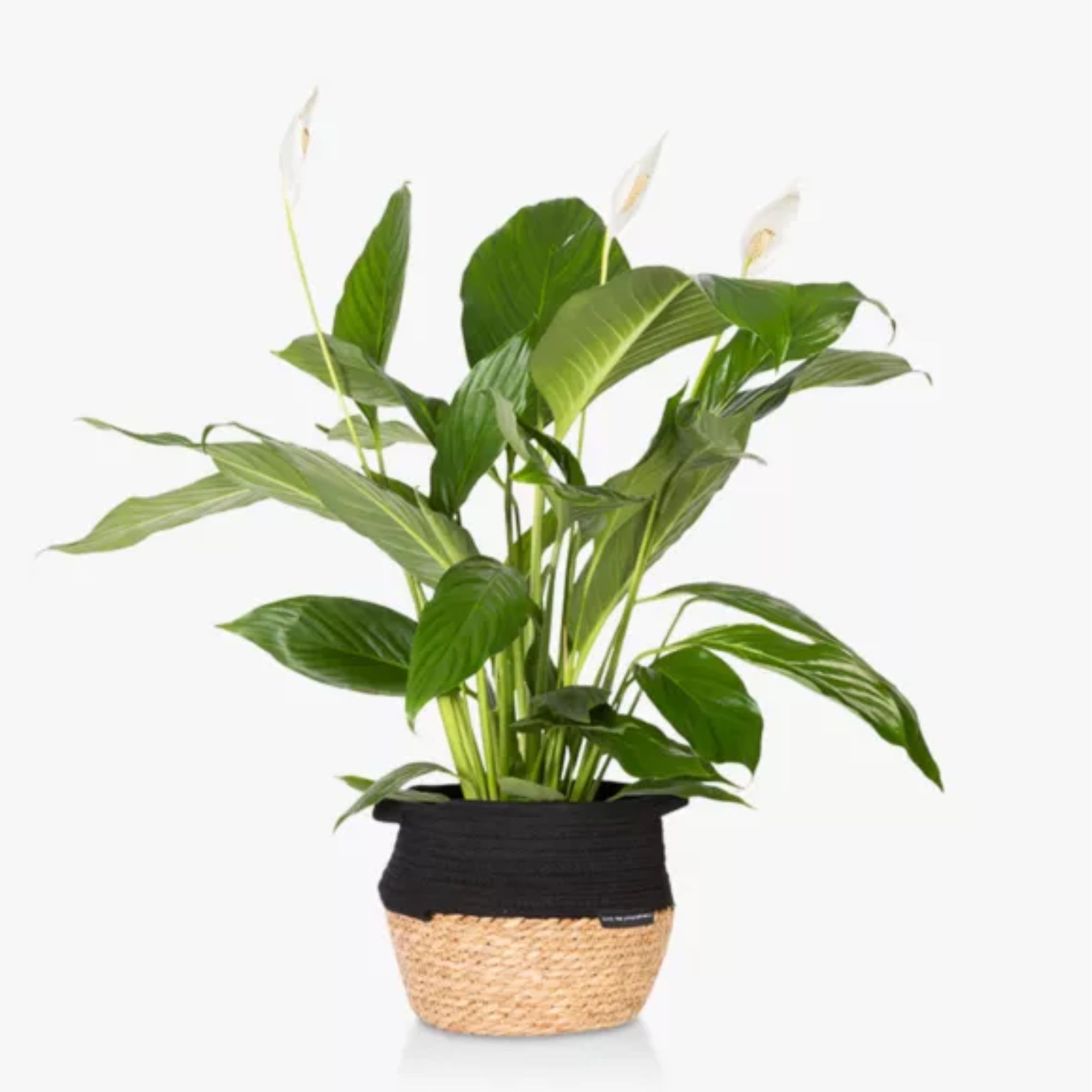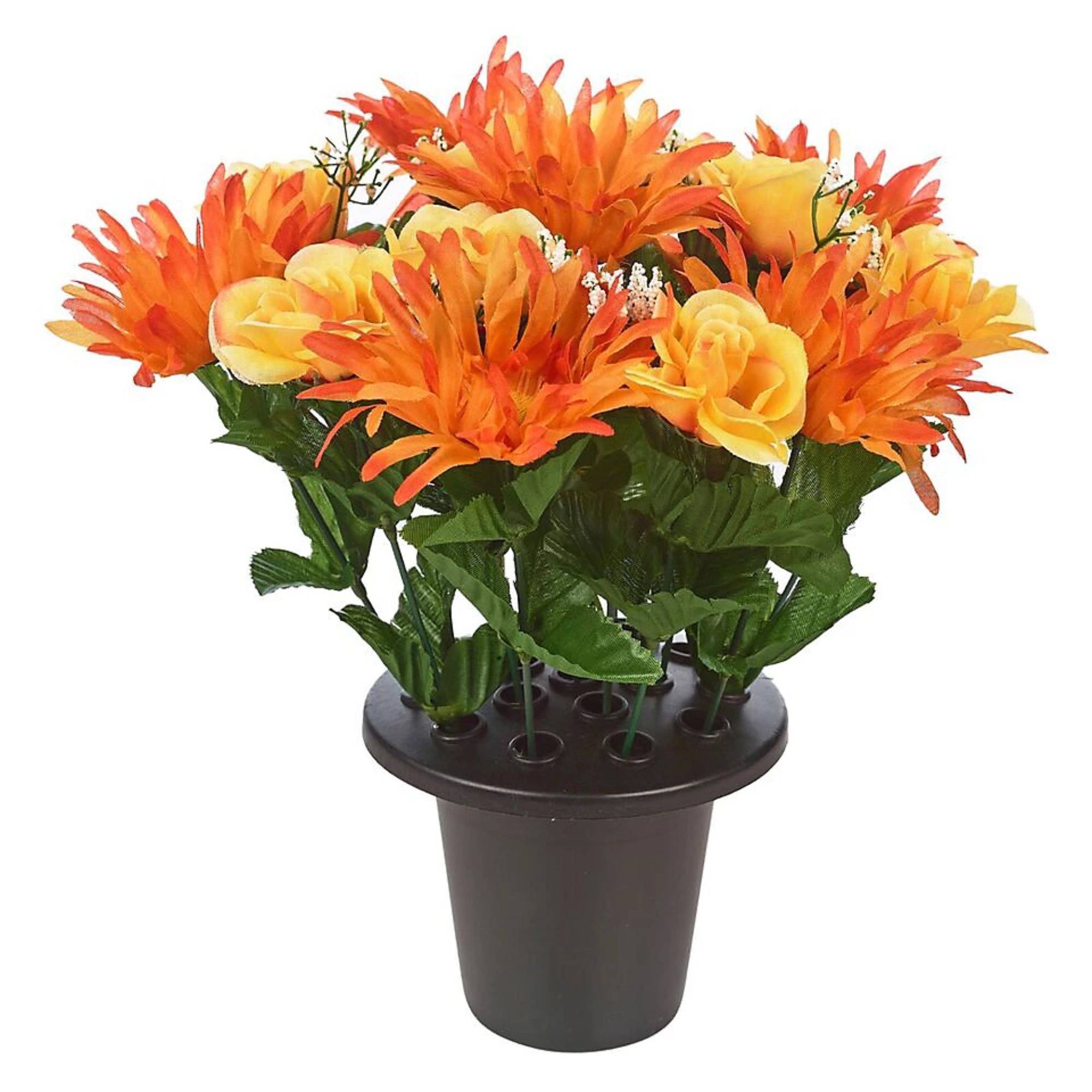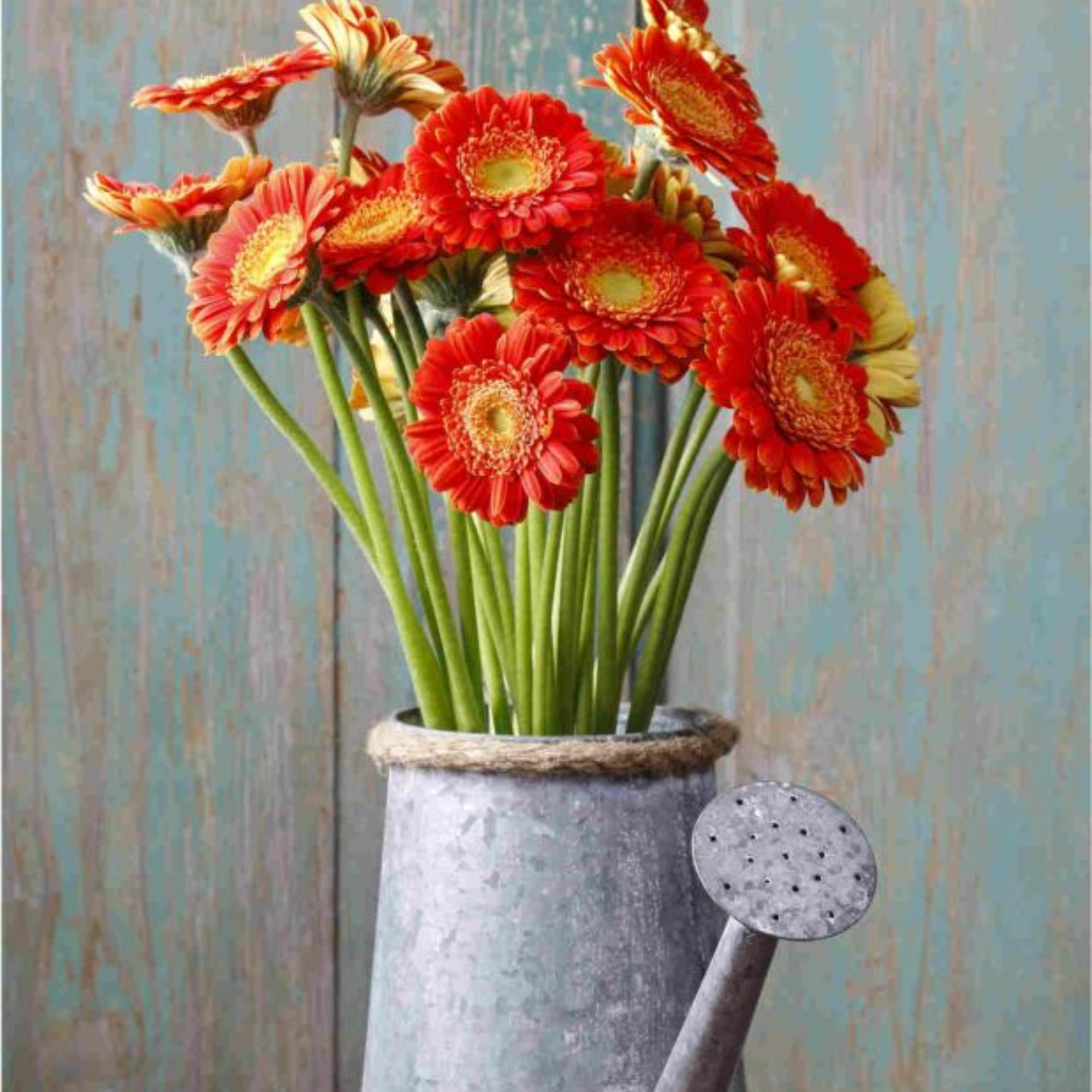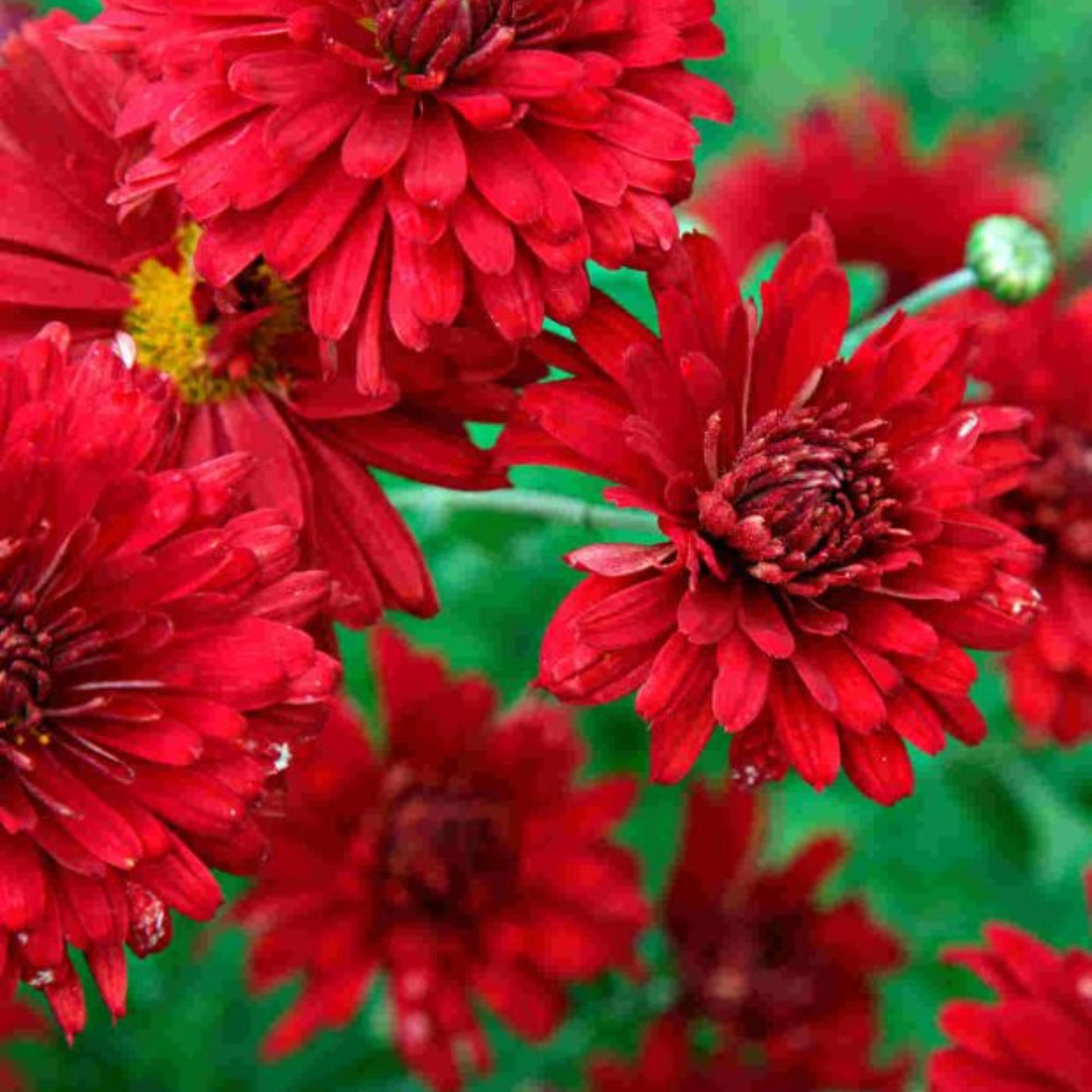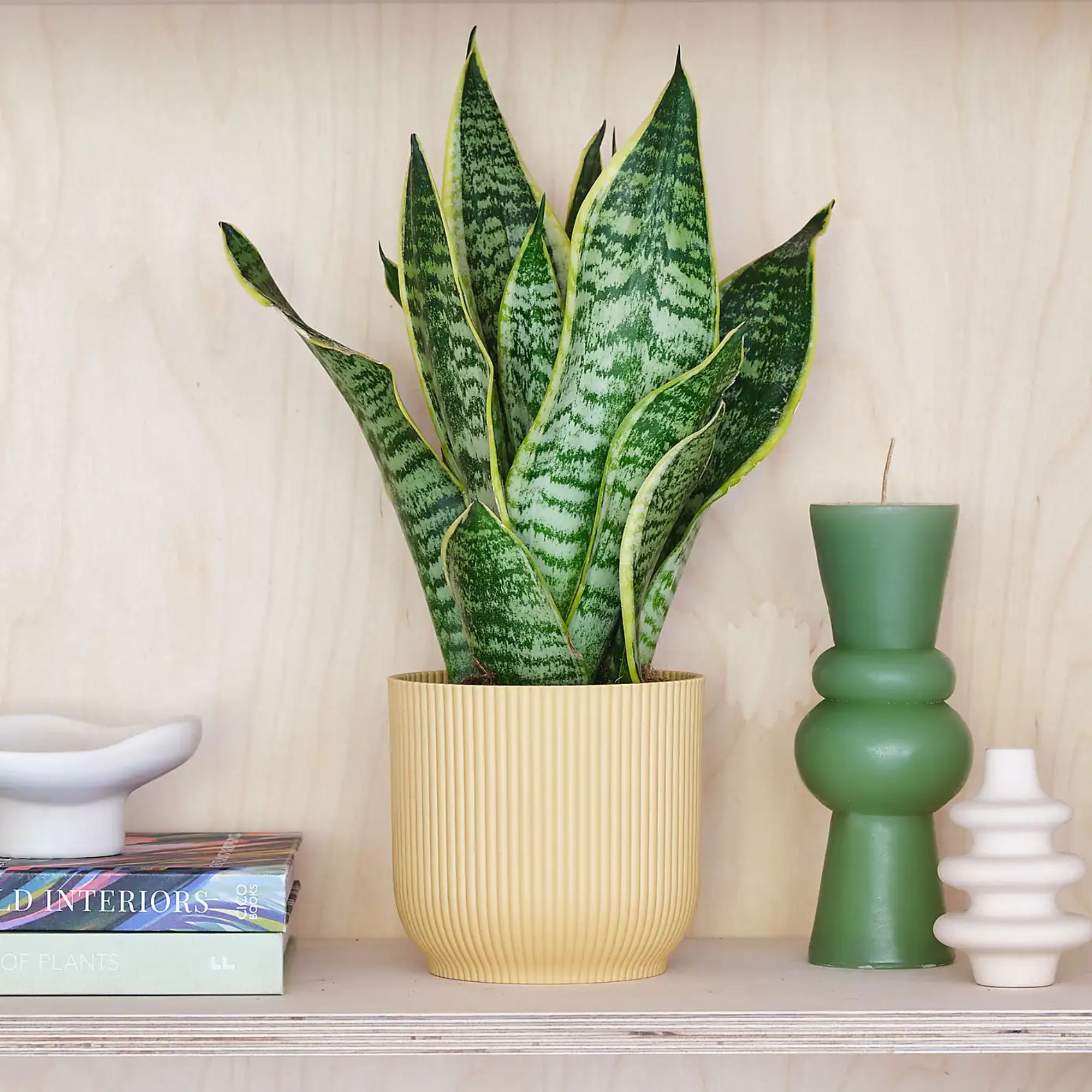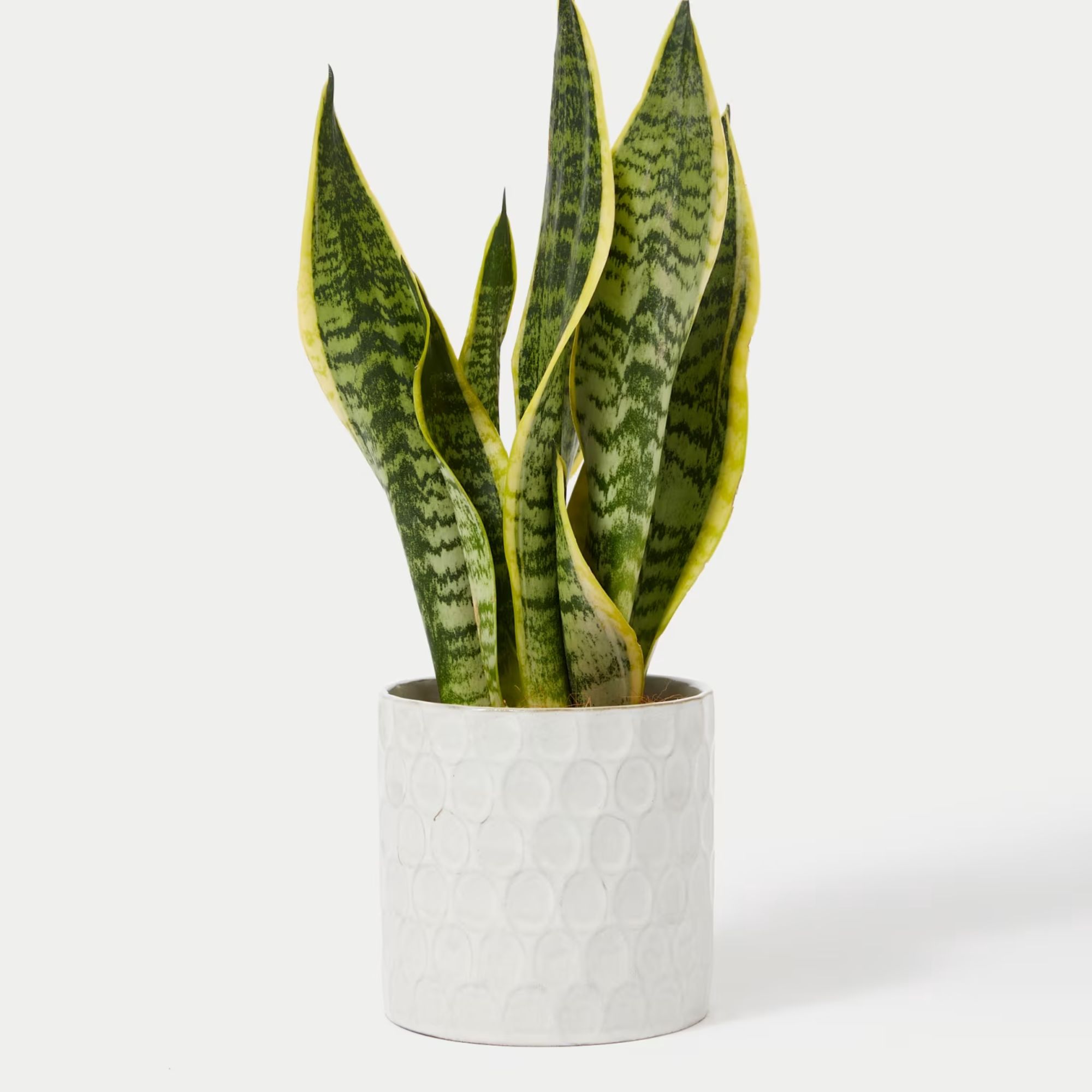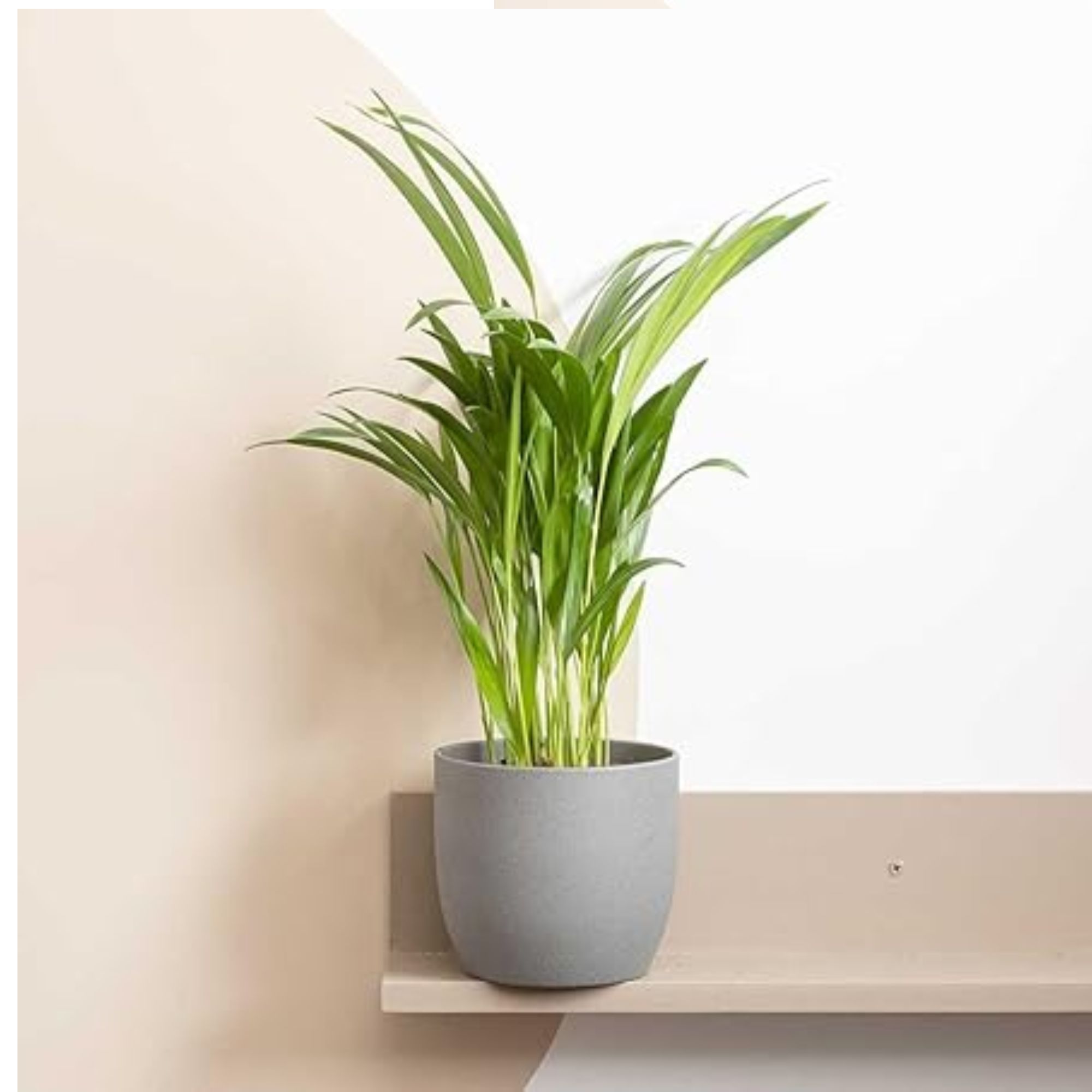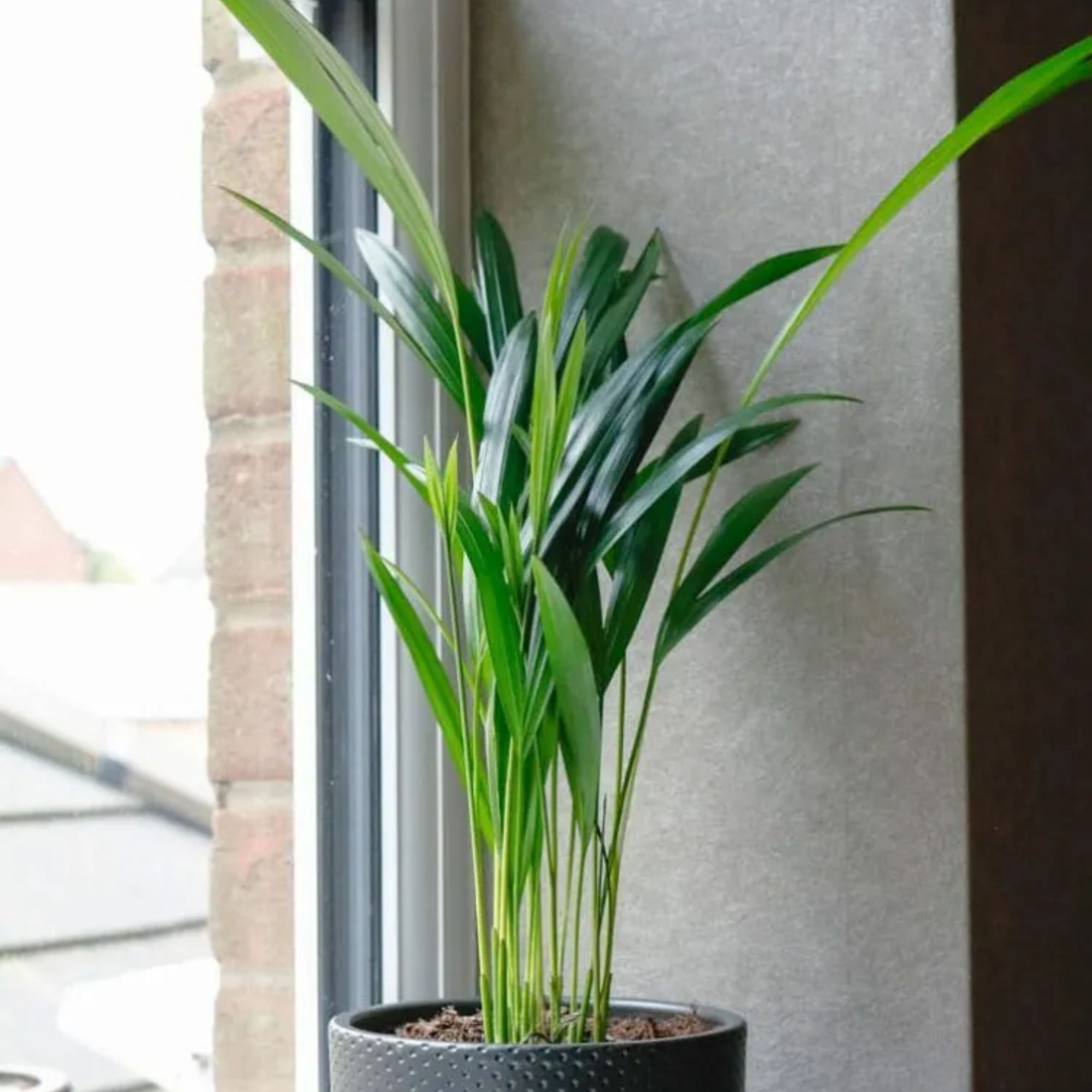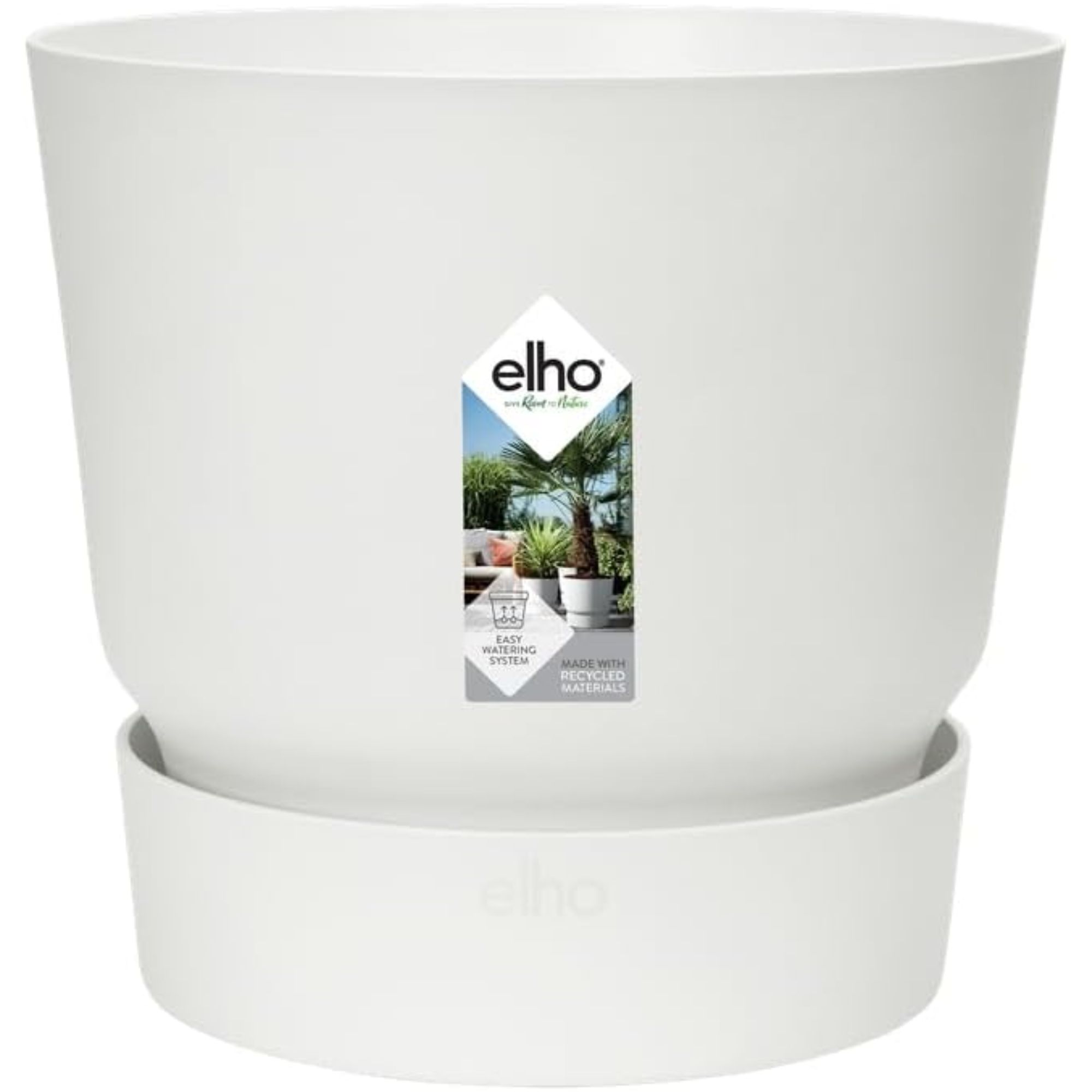Just one of these NASA-approved plants will clean the air in your whole room — it's incredible
Having greener fingers might give you some cleaner air too
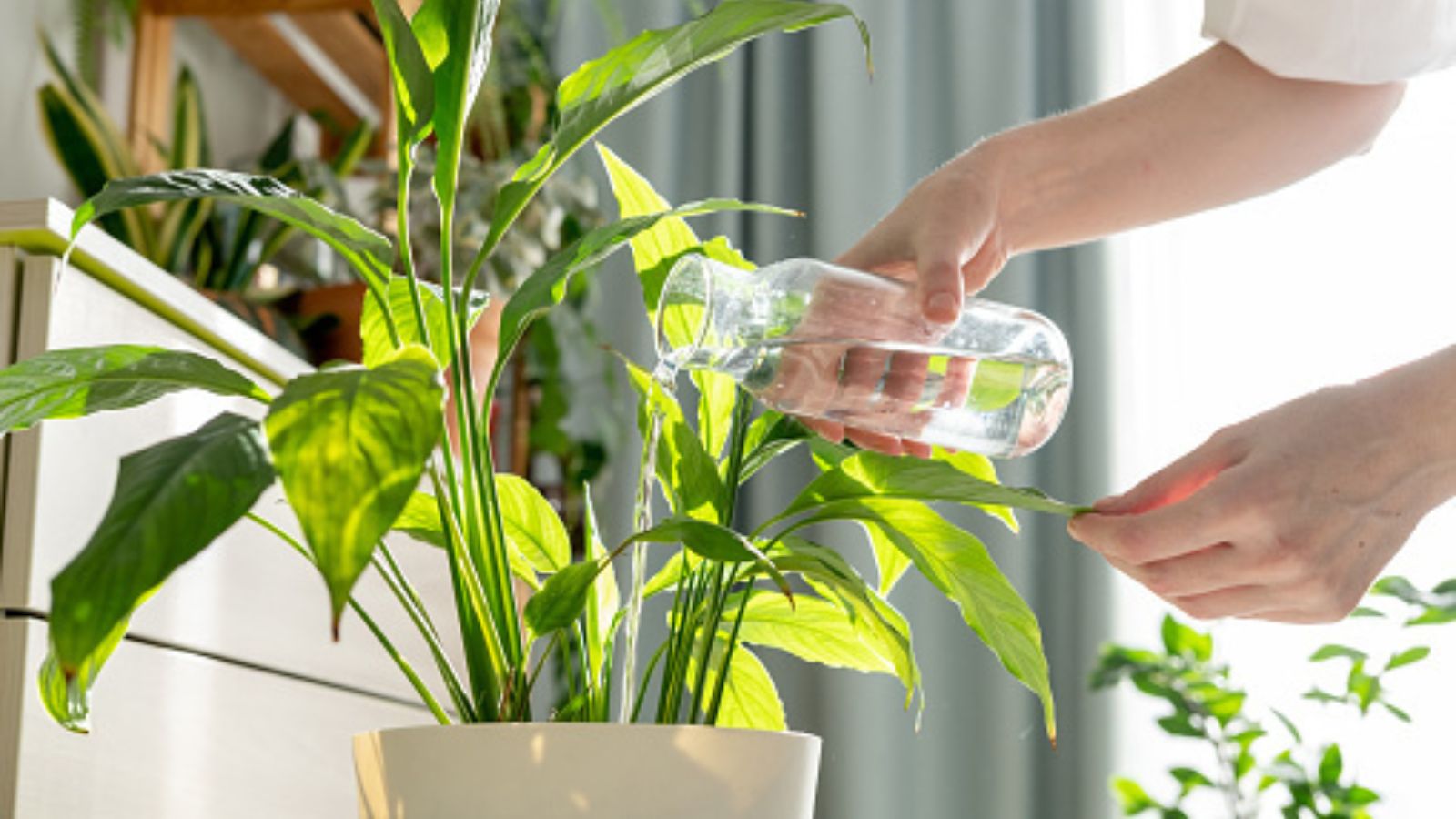

If you're looking to naturally clean the air in your home, you need to know about NASA's Clean Air Study. They 35 years ago they released a list of 50 plants that can remove all toxins from the air in your home. We spoke with experts to find the best air purifying houseplants for you.
I always believed that I needed one of the best air purifiers on the market to keep the air in my homecompletely clear. And yes, whilst they're still really important for allergy sufferers and speed cleaning of your air, NASA studies show that you can clear a lot of nasty carcinogens and harmful chemicals from the air by tending to your plant family at home.
That's great news on a number of fronts. These plants are cost efficient, work 24-hours a day, and they look beautiful too. The even better news is that you probably already own them. These houseplants are some of the classics: peace lillies, spider plants, and gerbera daisies. Lisa Beres, Certified Green Building Professional, has offered advice on her top picks, as well as where to put them in your home.
It's important to note that NASA's study was conducted in a sealed room, so when you move in and out of your lounge, for example, you will bring Volatile Organic Compounds and pollutants with you. The plants will help to reduce these levels, but you'll probably need an air purifier too, if you want perfectly clear air.
What do you need to remove from your air and why?
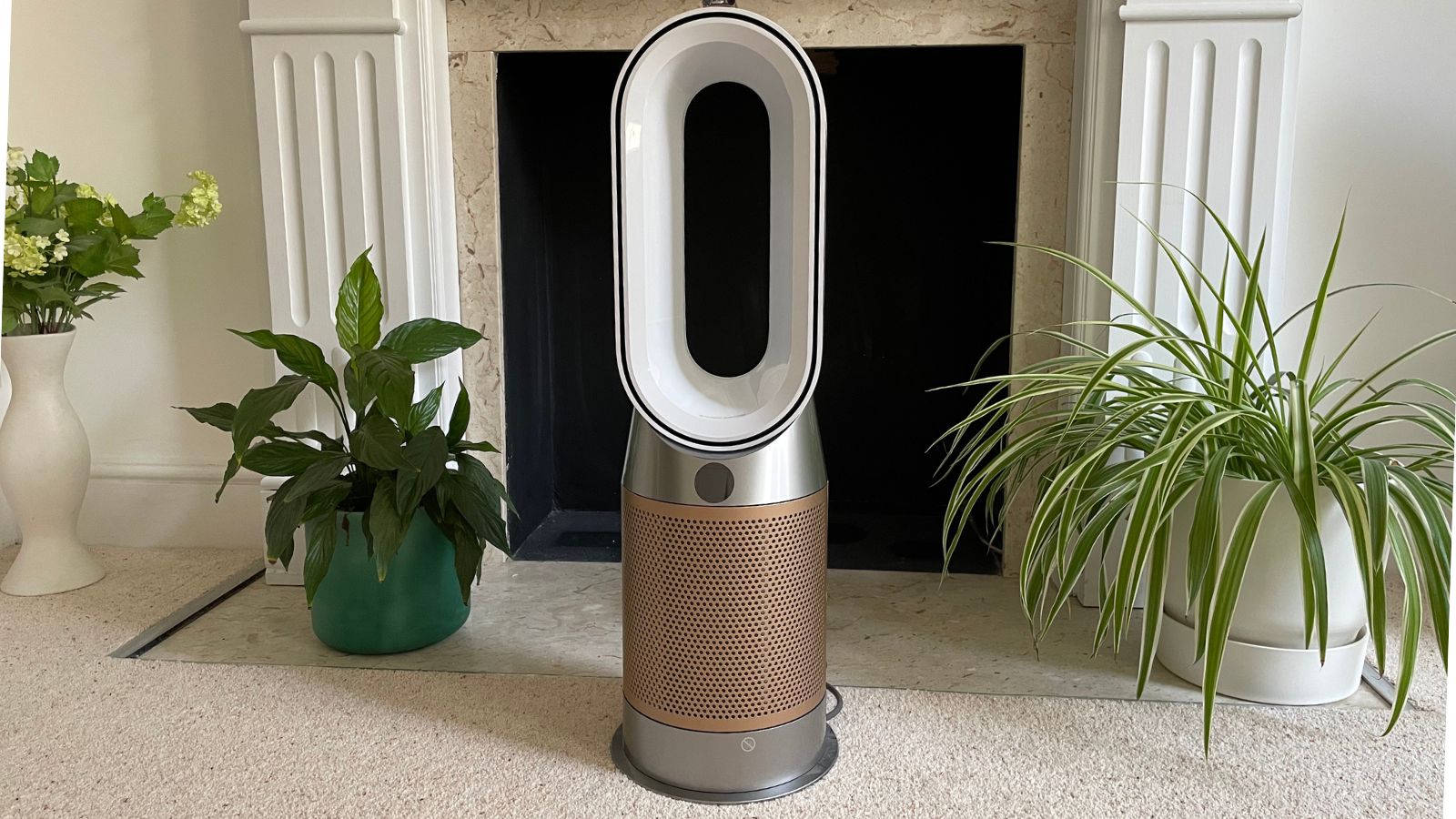
Before we start using big names for all the different impurities in the air, Lisa Beres, Certified Green Building Professional, has broken the main culprits of air pollution down for us.
"We all know that plants take in carbon dioxide in exchange for releasing oxygen. It was a fact drummed into all of us at school," says Lisa, " but, according to NASA's Clean Air Study, they're absorbing a lot more than just some CO2."
The main ones we need to think about are benzyne, formaldehyde, trichloroethane, xylene, and ammonia. Let's explain them in a bit more detail.
Sign up for the woman&home newsletter
Sign up to our free daily email for the latest royal and entertainment news, interesting opinion, expert advice on styling and beauty trends, and no-nonsense guides to the health and wellness questions you want answered.
- Trichloroethane: Lisa says this is common to find in the air of most homes because it's released in varnishes, adhesives, inks, and paint strippers. You can read more about the effects on the GOV website.
- Formaldehyde: if you've done some research into air purifiers, you'll see this mentioned. Lisa says "this is one of the worst pollutants because it's just everywhere: in kitchen cabinets, draperies, clothes, and air fresheners to name just a few."
- Benzene: this is one to watch out for if you have an attached garage or if you smoke. It's released when you burn tobacco or fuel and it's in pesticides too.
- Xylene: again, this is released from exhausts, so if you live near a busy road, it's likely to be in your home. It's also in printing products and inks too.
- Ammonia: you'll know this one because it's used in lots of window cleaners and floor waxes. You definitely don't want to breathe it in.
The best air purifying houseplants
1. Spider Plant (Chlorophytum Variegatum)
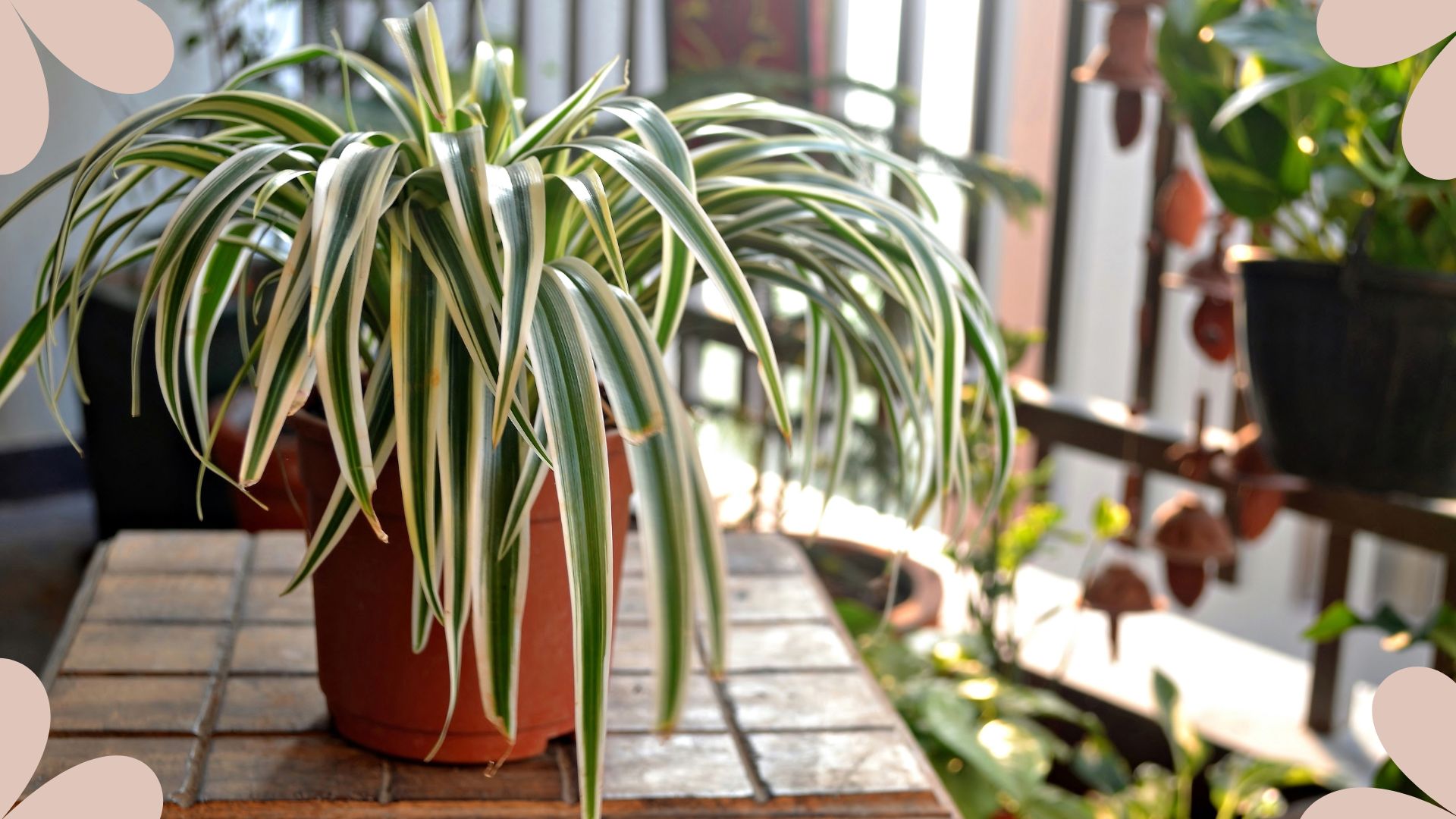
I've been a proud parent to my spider plant (Desmond) and its many spider plant pups over the years, so I was overjoyed to see this featured in NASA's Clean Air Study. In fact, it's actually in their top three houseplants for removing formaldehyde, which is one of the most important gases to clear from the air in your home.
Lisa Beres, Certified Green Building Professional, says "this is the perfect plant for any home or office. You're almost guaranteed to have formaldehyde flying around in the air and it's a harmful carcinogen."
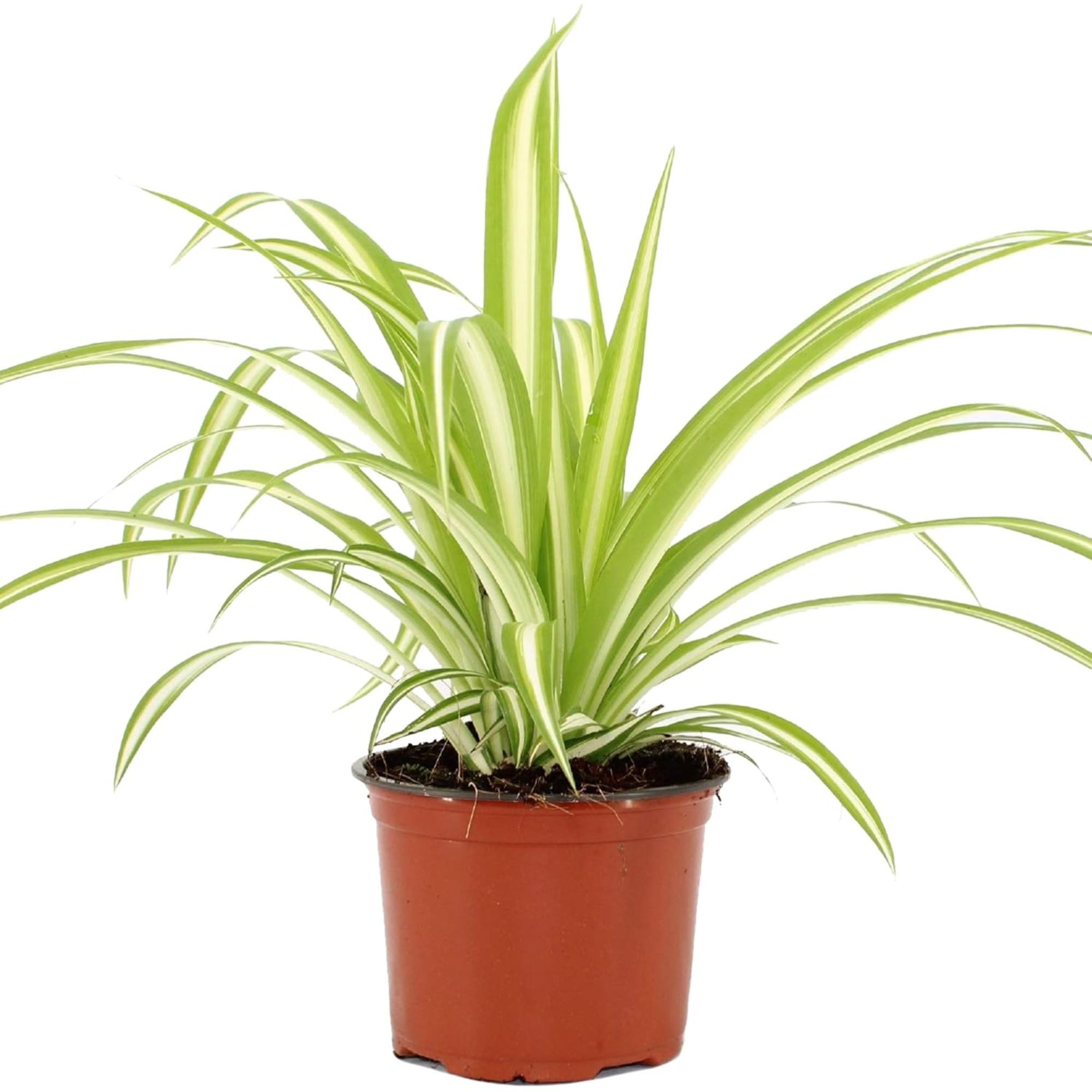
Perfect for the kitchen or the office, this low-maintenance spider plant comes with a 30-cm pot.
2. Peace Lily (Spathiphyllum Wallisii)
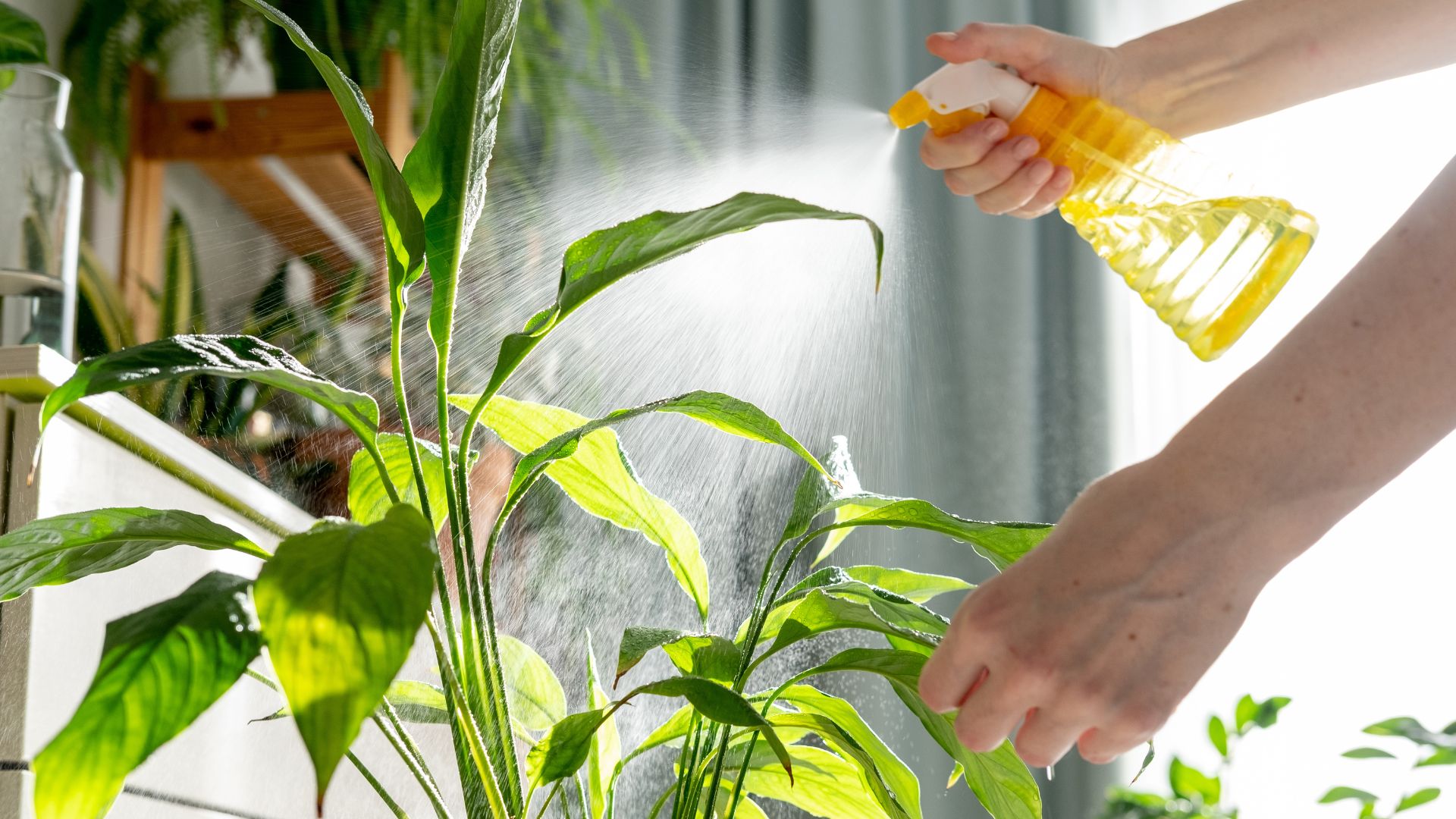
You probably won't be surprised to find the peace lily on this list. It's a classic plant that people buy to purify the air in their homes. In fact, it's affectionately known as the 'clean all plant' in the gardening world.
"I'd put this in a bathroom, laundry room, or a damp space because it's an expert at removing mould spores from the air," says Lisa "that's not it though. It'll take out formaldehyde and trichloroethylene, which are two of the seriously bad guys in the world of air pollutants." You get brains and beauty with this one.
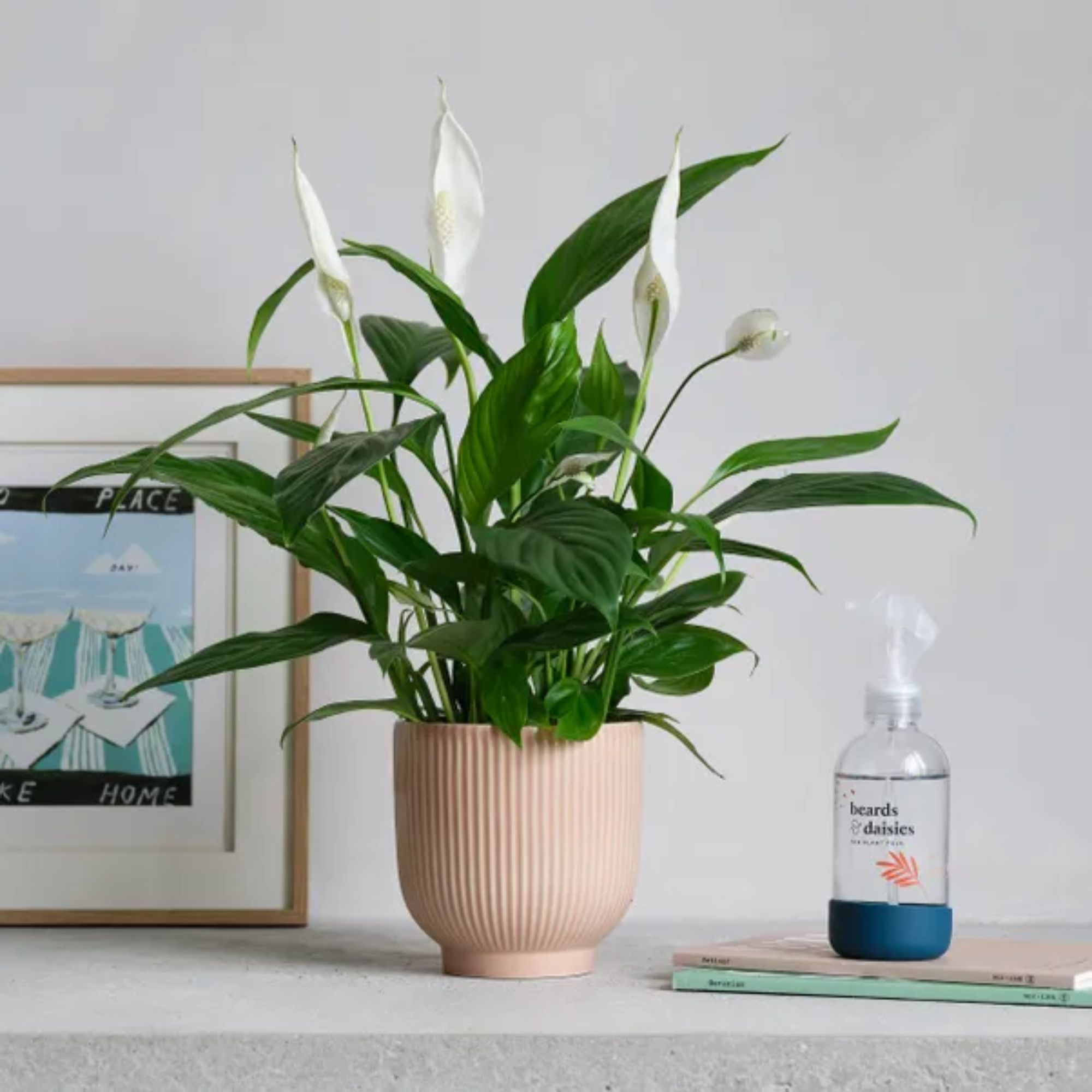
You can choose between three different shades of ceramic for this peace lily pot. Plus, it comes with a useful mister for keeping your leaves and flowers fresh.
3. Gerbera Daisy (Transvaal Daisy)
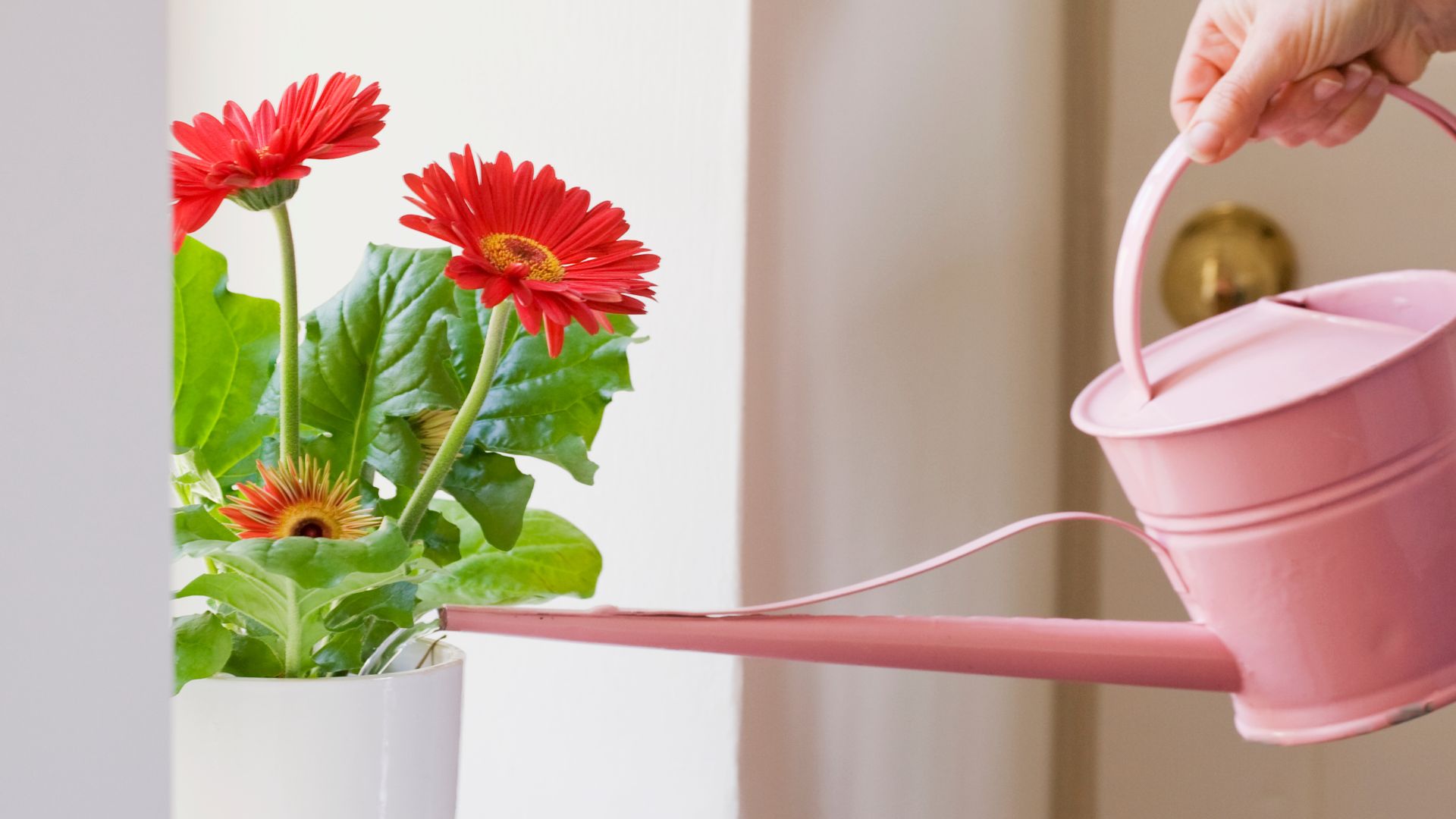
The gerbera daisy is proof that prettiness can be practical too. "This is one of my favourites," says Lisa, "because it's just so cute. It's one of the flowering plants that can purify air — some are just leafy greens. I often give it as a housewarming gift, because it's pretty and it helps the recipient practically too."
Lisa tells me that this is a real expert at removing benzene amongst other air pollutants, but it has another special job. "If you put this by your bed, you'll notice that the gerber daisy does something really special. It removes CO2 from the air, like all plants, but it actually releases more oxygen at night." That's perfect if you want to keep an eye on the air quality in your bedroom, especially if you sleep with the doors and windows shut.
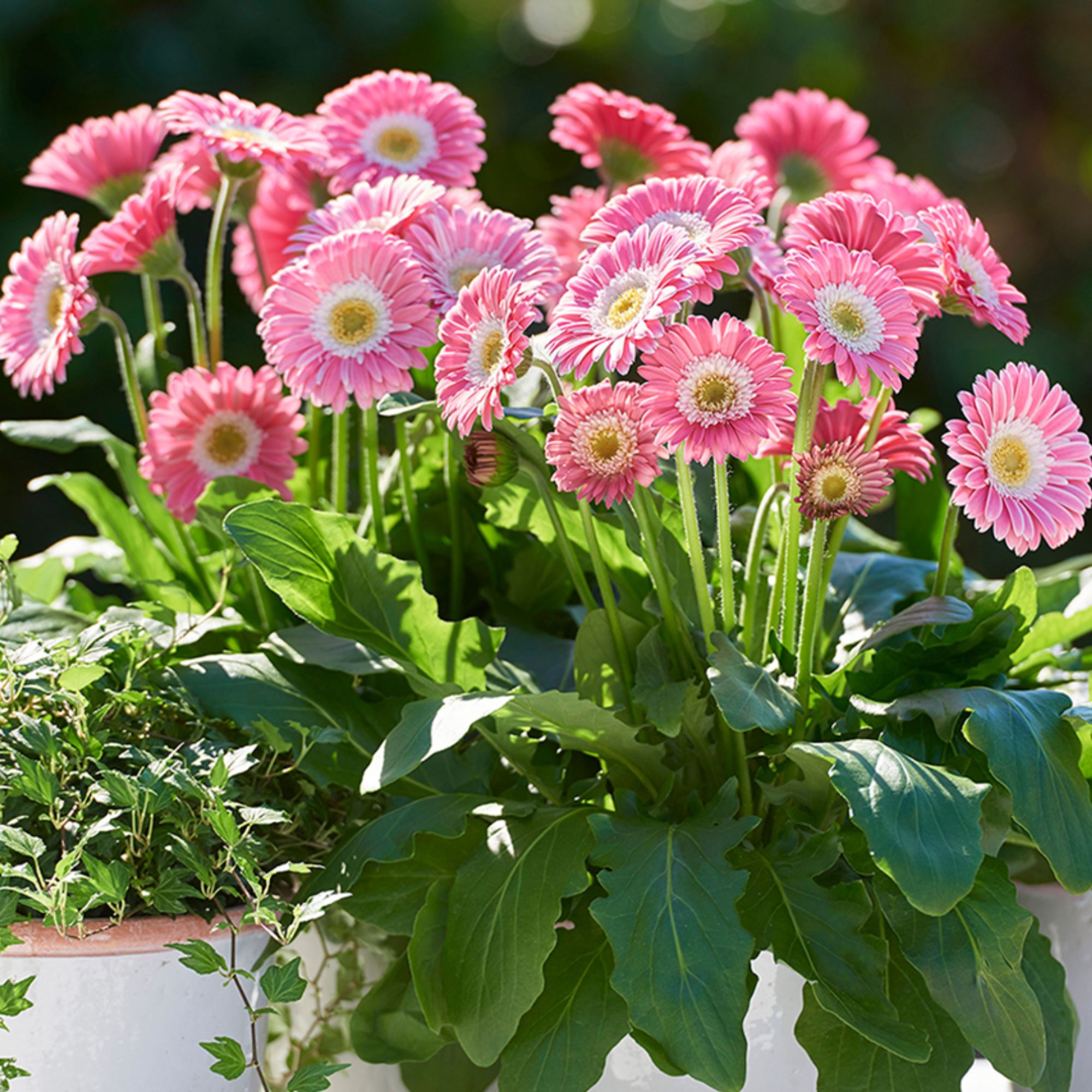
These are an all-year round border beauty. They're sold in 3-litre pots which you can plant in the garden or cut to put in a vase.
4. Chrysanthemum
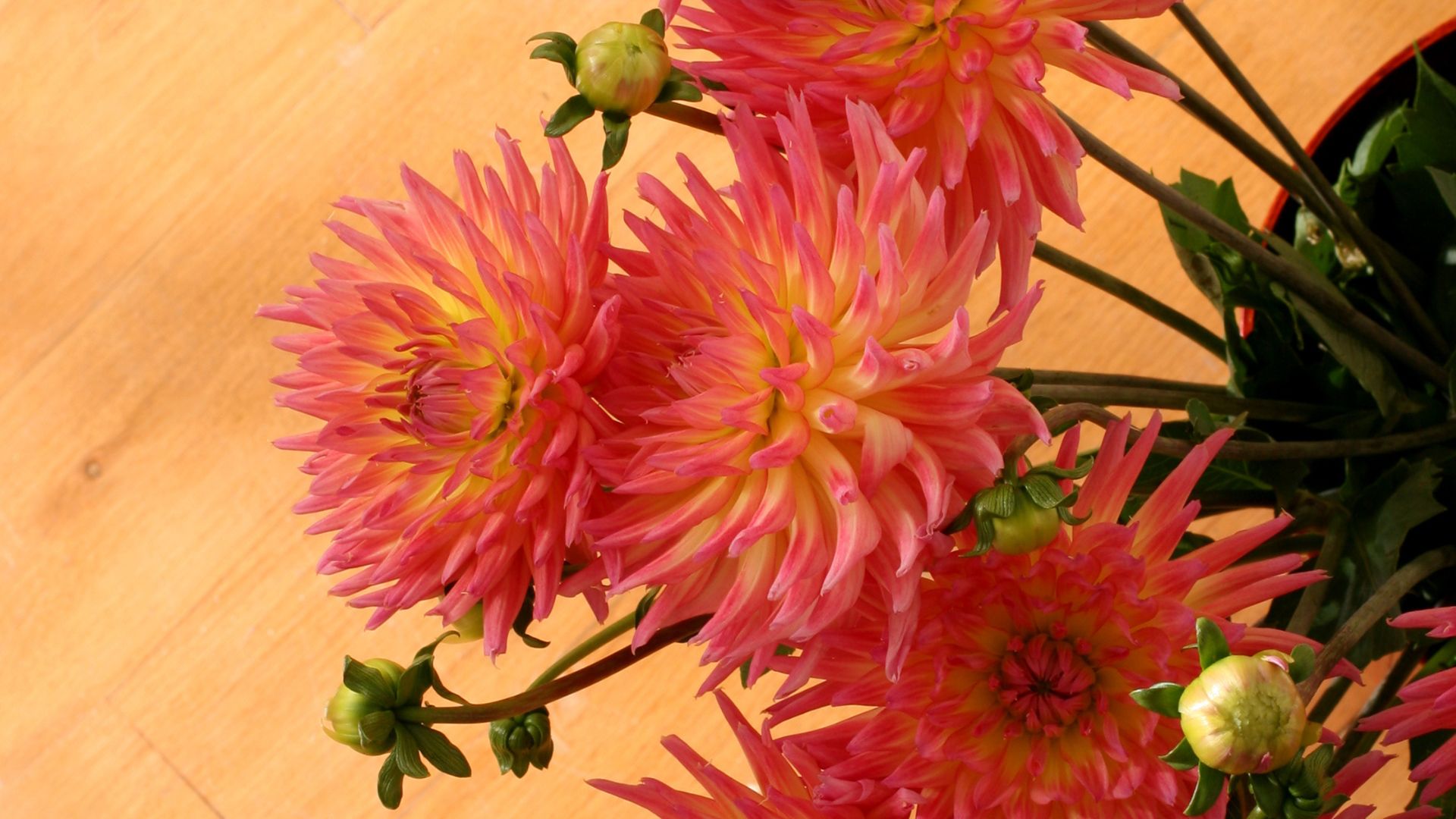
Chrysanthemums are another member of the pretty and practical club. You'll often find these cut, in beautiful bouquets, but you can grow your own at home (and put them in a vase later, if you want).
Lisa says "these are one of my favourites because they remove everything from the air: benzene, formaldehyde, trichloroethane, xylene, and ammonia."
Even though I'm already set with my houseplants, I've put an order in for these. They're also a great contender as a housewarming gift, what's better than the gift of completely purified air (and a pretty plant)?
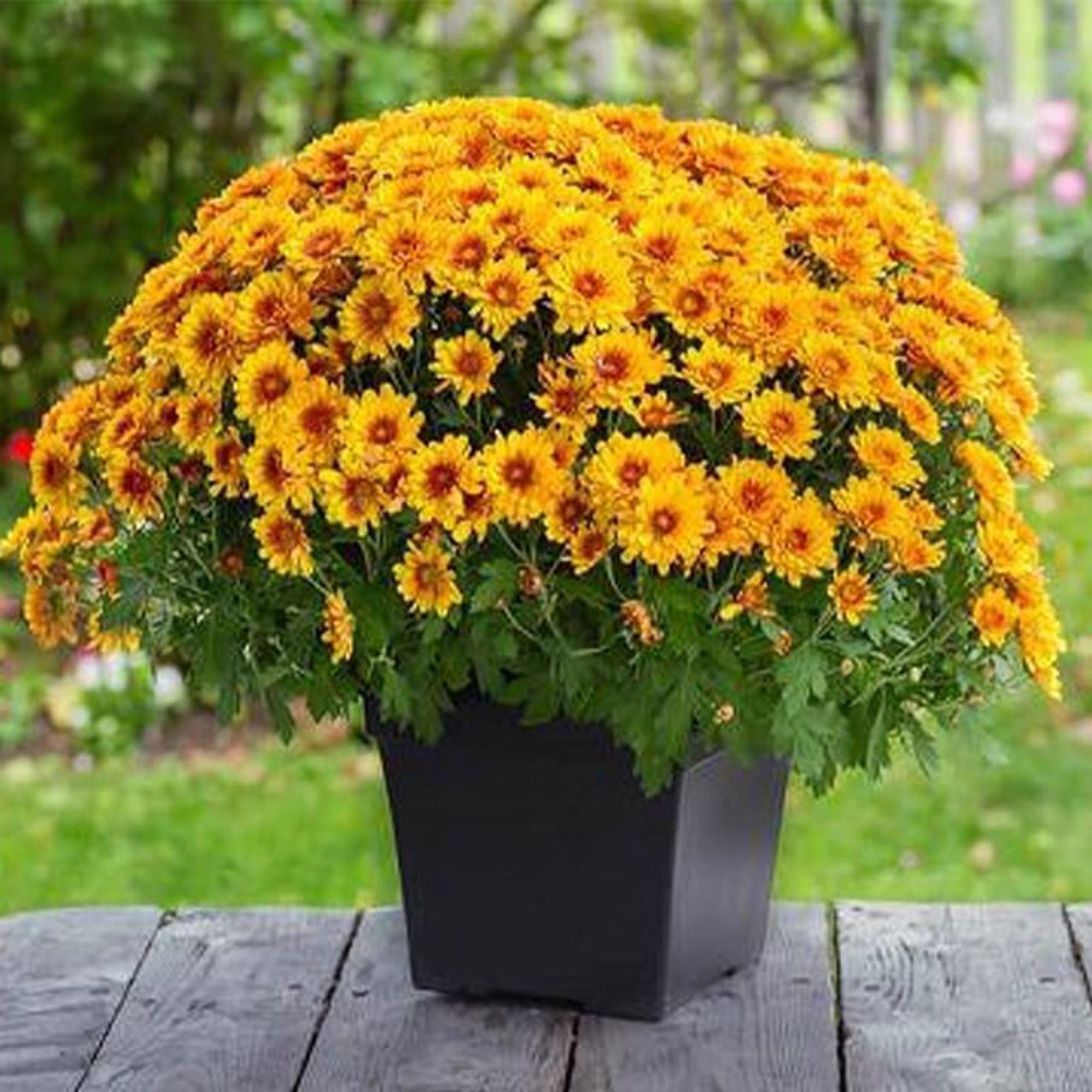
These are available in yellow, red, white, pink, orange, or mixed colours. They're robust enough for any beginner gardener.
5. Snake Plant (Dracaena Trifasciata)
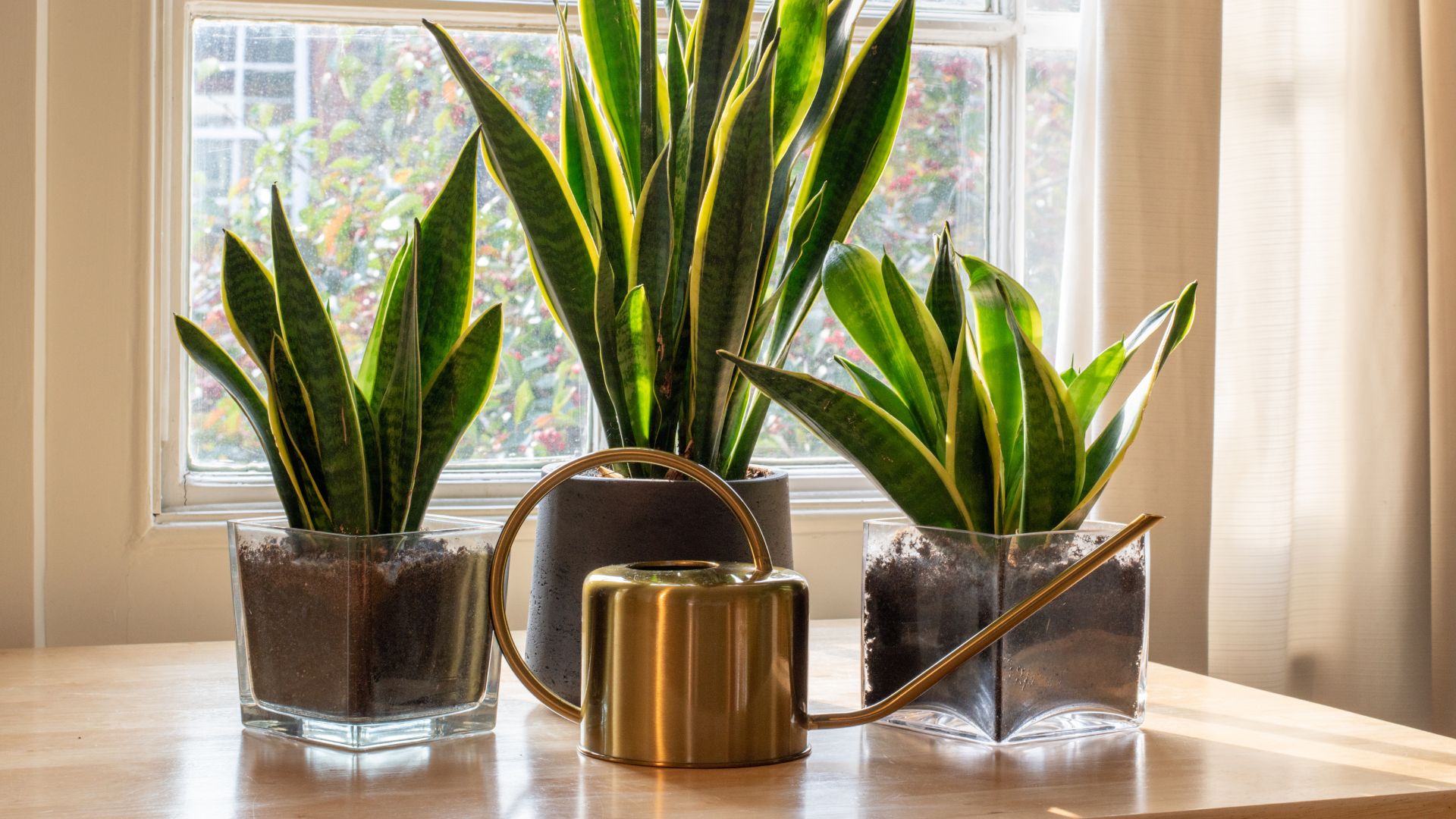
"If you have an attached garage or you live near a busy road, you'll really need one of these," says Lisa. The snake plant is an expert at filtering out nitrogen oxide (commonly released from car exhausts). It also does a deft job of removing the classic carcinogen, formaldehyde from your air.
I love the idea of creating a little air-purifying sanctuary with one of these. The thick, green leaves are a nice contrast to some of the more wispy leaves and flowers on NASA's Clean Air Study list. And, when this does bloom, the tiny, pale green flowers smell beautiful.
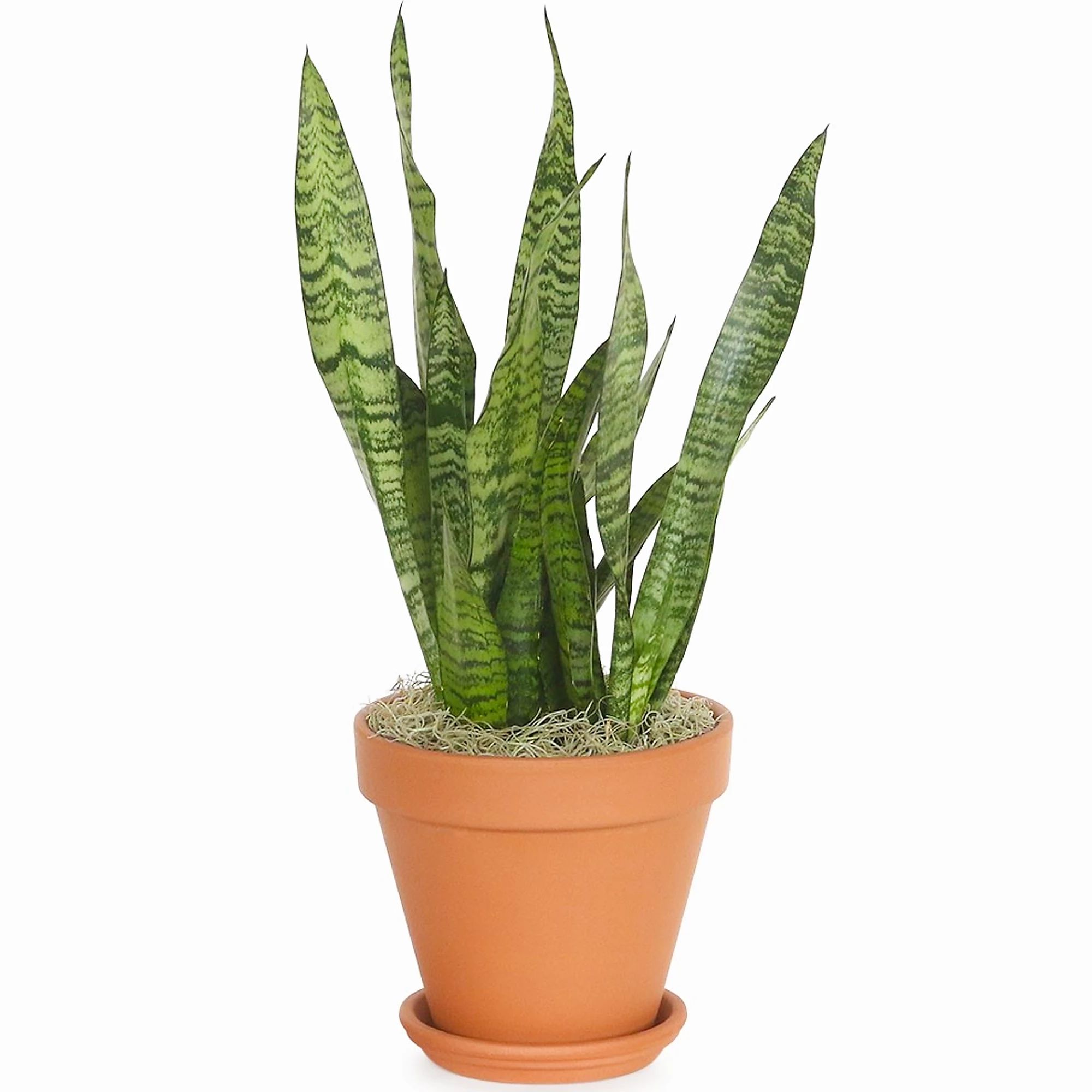
The Sansevieria Black Coral has two tones of dark and light green which mix across the plant. They majestically spiral up like a sword, which is why snake plants are popular.
6. Areca Palm (Dypsis Lutescens)
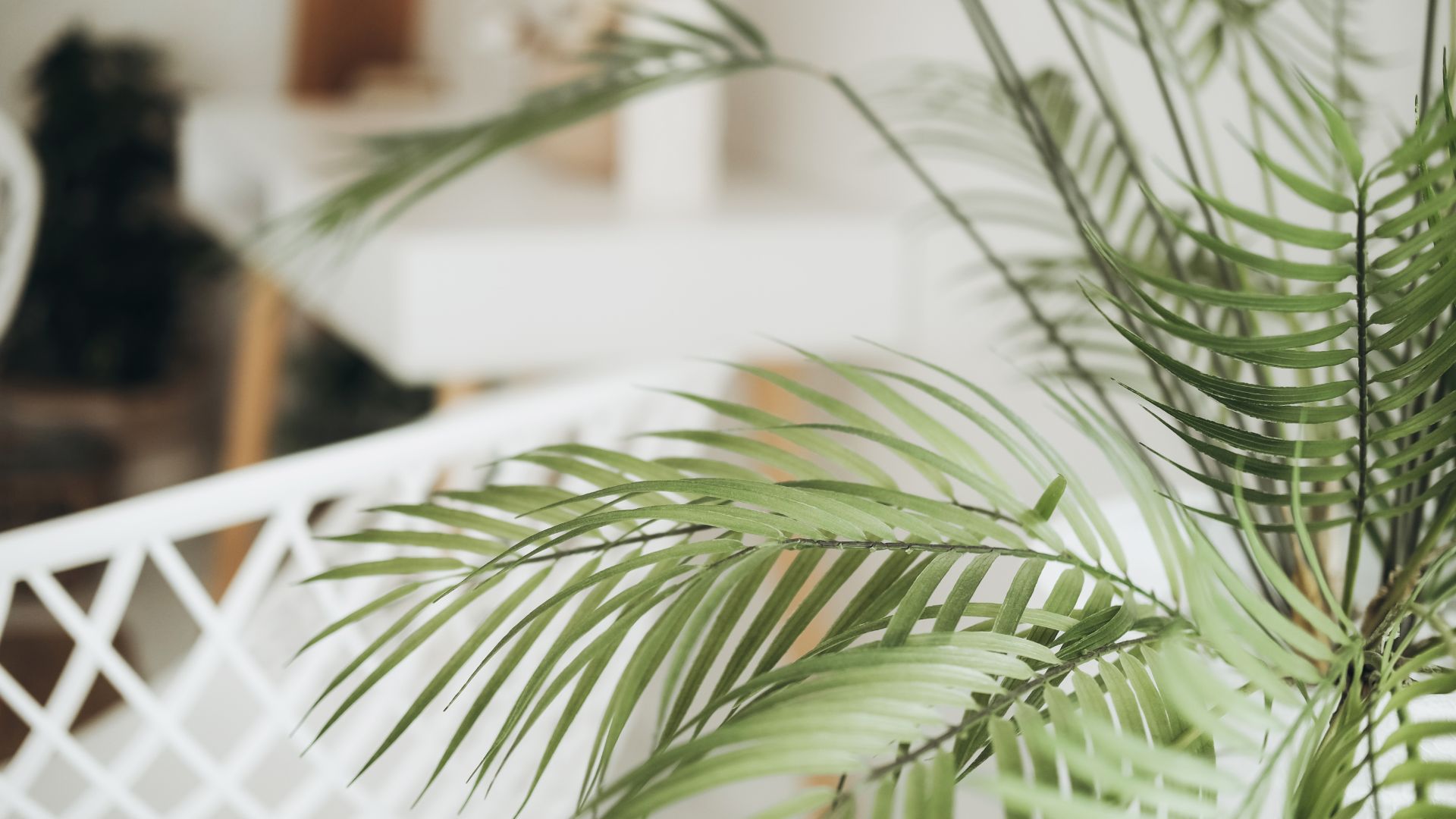
Lisa labelled this as the "best houseplant for general air cleanliness" it filters out handfuls of air pollutants wherever it is in the home.
Whilst it's quite not the cute, floral gerbera daisy, it's a classic plant for adding some green to the corner of a room.
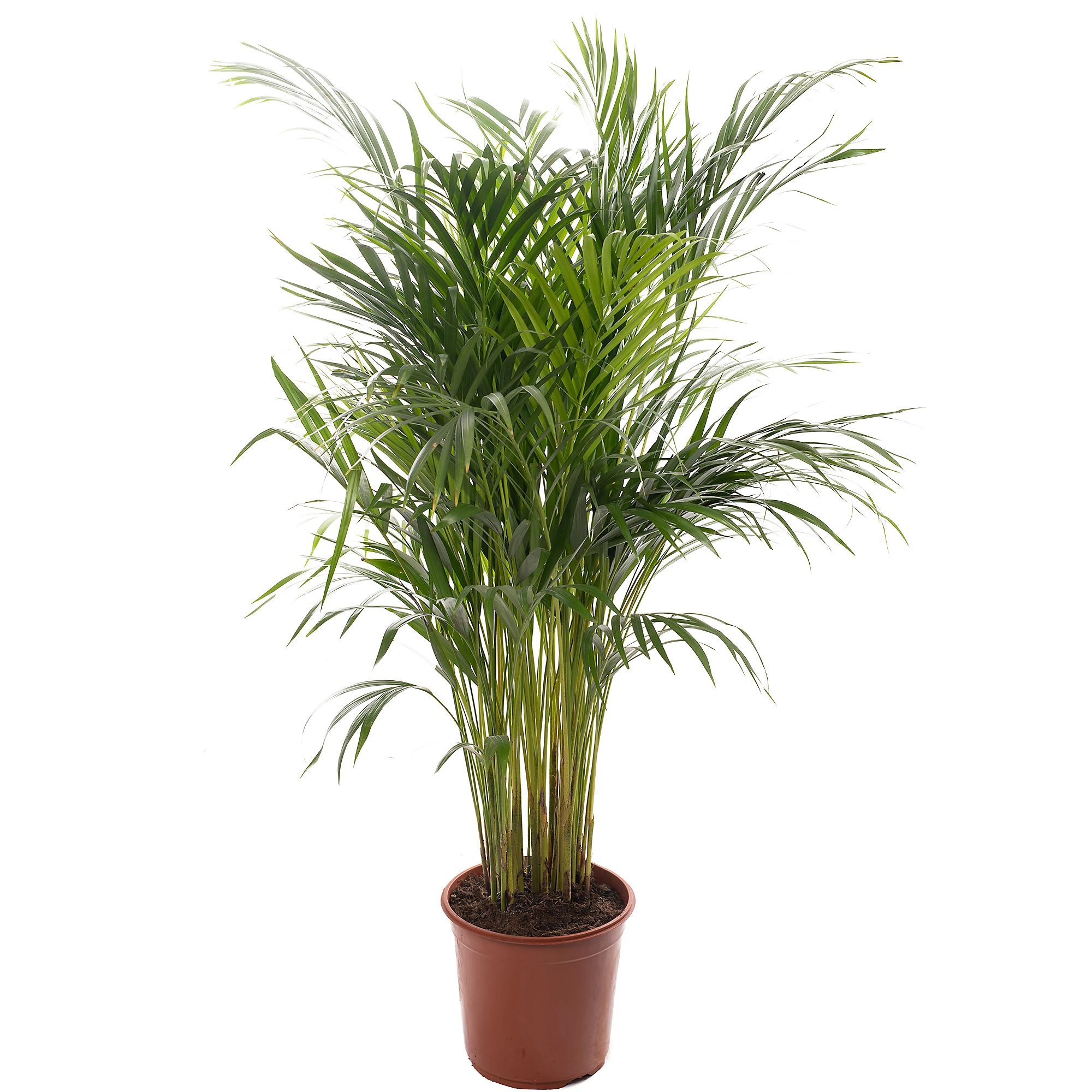
You can buy these luscious plants in a range of heights, but at B&Q they're 50-60 cm tall. It's graceful, durable, and perfect for purifying your home.
Plant essentials
If you're a beginner with home plants, there are a few essentials that you might want to add to your cart too. Trust us, we've been there. Here's what I have in the cupboard.

The long, thin spout on this watering can makes it really easy to get a good pour into any of my plant pots and the spray bottle is a priceless addition. You can trust Elho to deliver quality too.

We all have our favourite plant foods (you can even mix sugar and water together at home), but if yours is looking a little worse for wear, this is a miracle worker.
FAQs
Do air purifying plants even work?
If you invest in one of the air purifying plants on NASA's dedicated list, then yes, your plant really will clean your air for you. And you have NASA's word for it. Their research suggested that having just one plant in a 100 square foot for 24 hours can clean 90% of the room's air. However, you need to keep in mind that this study was conducted in a sealed room with no airflow.
In reality, as we enter and leave rooms, we move Volatile Organic Compounds (VOCs) and pollutants in and out with us. With that in mind, these plants are good to have around and they certainly work, but they won't replace your air purifier,
Do I still need an air purifier as well as air purifying plants?
The best air-purifying plants will do a good job of removing toxins from the air, but if you keep opening and closing the doors, they're in a constant battle. I'd still recommend using an air purifier, because it's really quick and super effective, even in rooms with lots of airflow.
If you're not in a really polluted area, air-purifying plants will be very helpful at lifting some of the most damaging toxins from our air (including formaldehyde, carbon monoxide, and benzene). However, Lisa says, "electric air purifiers are fitted with special technology that you might benefit from. If you have a very specific issue, your air purifier might be able to tackle it in ways that your plants can't. For example, those with allergies and pets might want to think about investing in an air purifier anyway"
How many plants do I need per room?
According to NASA's study, you only need one plant per every 100 square feet, so you'll have to do the maths on your own rooms. It'll likely only be one. It's worth taking Lisa's advice and opting to tailor your plants to your space. The peace lily in a laundry room is a great piece of advice — it's one I have adopted in my home.
Is the NASA Clean Air Study accurate?
The study itself was carries out in 1989, so it's no spring chicken in terms of research. NASA did its study in an enclosed space, because it was designed to be useful for astronauts. Ever since, people have suggested that the results are not quite as effective in typical buildings where there are opening and closing doors and windows, as these let out VOCs and other damaging products. However, opening and closing windows lets them in too. I don't think it can hurt to have them.
By the look of it, the best air purifying plants on the market can completely overhaul the air quality in your home. And they'll offer some aesthetic and audible benefits too: they're much nicer to look at than an air purifier and much quieter too. Rest assured, after reading the NASA study and listening to Lisa's advice, I have expanded my plant family. However, don't think that my air purifier has lost its spot, it also works as a fan, heater, and speedy purifier of allergens and smoke in my home, after all.

Laura is woman&home's eCommerce editor, in charge of testing, reviewing and creating buying guides for the Homes section, so you'll usually see her testing everything from the best dehumidifiers to sizing up the latest Le Cruset pot. Previously, she was eCommerce editor at Homes & Gardens magazine, where she specialised in covering coffee and product content, looking for pieces tailored for timelessness. The secret to her heart is both simplicity and quality. She is also a qualified Master Perfumer and holds an English degree from Oxford University. Her first editorial job was as Fashion writer for The White Company.
-
 Dr Amir Khan reveals the 5 symptoms you should 'never' ignore, no matter how 'vague' they are
Dr Amir Khan reveals the 5 symptoms you should 'never' ignore, no matter how 'vague' they areDr Amir Khan, a GP who often appears on ITV's Lorraine, took to Instagram this week to share the symptoms he'll always take a second look at
By Grace Walsh
-
 Head to Hobbs for holiday-ready linen and the most elegant summer dresses you’ll find on the high street
Head to Hobbs for holiday-ready linen and the most elegant summer dresses you’ll find on the high streetWondering where to shop for a chic summer wardrobe? Hobbs has you covered
By Caroline Parr
